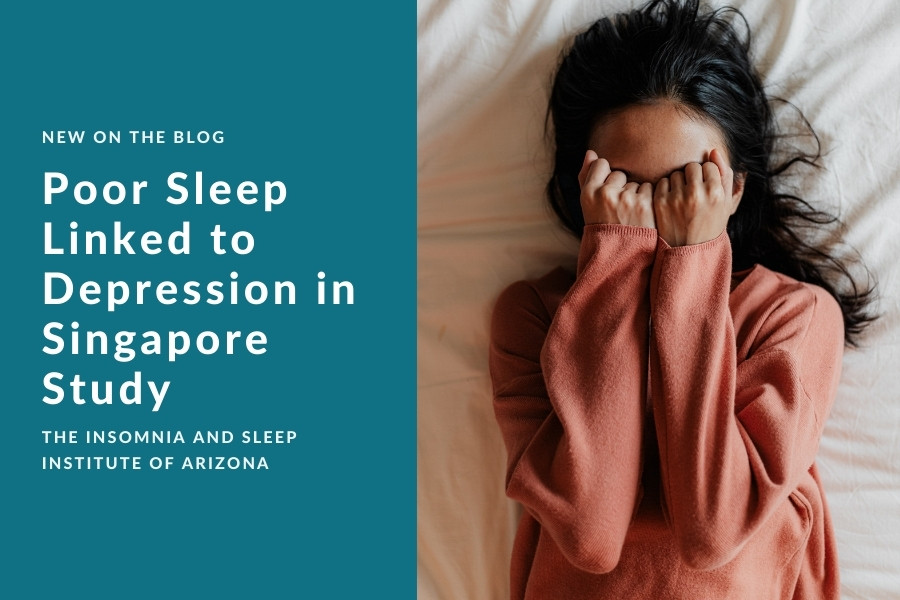Sleep is an integral part of your holistic health, impacting (for better or worse) physical, emotional, mental, and social well-being. The Insomnia and Sleep Institute of Arizona is home to triple board-certified sleep specialist Dr. Ruchir P. Patel, MD, FACP. Here you’ll find the “Top Doc” in the region as voted by his peers for the past six consecutive years, and you will enjoy access to unprecedented levels of staffing including a clinical psychologist focused on cognitive behavioral therapy for insomnia (CBT-I). Insomnia, whether acute or chronic, can drastically disrupt your life and health—and sometimes people are not even aware that they have sleep disturbances.
“Insomnia” can present in a few different ways, including struggling to fall asleep and stay asleep. Ultimately, it leads to a lack of REM sleep, which is a necessity for a healthy life. Singapore scientists created a machine learning program that works with wearable devices in order to examine if those with a high risk of depression presented with certain sleep patterns, circadian rhythms, and physical activity compared to those at a normal or low risk of depression. The study concluded that those with “more varied heart rates” from 2 – 4 a.m. as well as 4 – 6 a.m. “tended to be prone to more severe depressive symptoms.”
What Poor Sleep Means for Mental Health
The Singapore study is not novel, and in fact supports previous studies that found changes in heart rate while asleep may be a “valid physiological marker of depression.” However, this is also a bit of a chicken or the egg scenario—is heart rate varied (and, in turn, sleep potentially disturbed) because someone has depression, or are shifting heart rates causing depression? According to the authors of this study, the weekday rhythms of the heart are largely dictated by work routines. In turn, being able to follow such routines marks the difference between those who are healthy and those who are depressed. Healthy people showcase better regularity in sleep and wake timings.
The goal of the study was to support the use of wearable technology for mental health, as well as drive policy change. The researchers are aiming big, suggesting the tech might be able to be integrated into “smart buildings” or “smart cities.” The lead author says, “Imagine a hospital or a military unit that could use these signals to identify people at risk.”
Sleep Patterns and Your Mental Health
An additional finding in the study is that it is not just heart rate that might indicate depression. People with varying sleep times and wake-up times also showed a higher tendency toward depressive symptoms. The researchers say this is further support for wearing devices in order to notice and track mental health, possibly depending largely on wearables as a depression screening. The study involved 290 working people who were kited out with a Fitbit Charge 2 device for two weeks. They filled out two health surveys and were screened for depression both at the start and end of the study.
The average person was 33 and the sample echoed the demographics of Singapore. The only time the device was taken off was for showers and charging. In addition to correctly identifying which participants had higher tendencies towards depression, the researchers also successfully linked behaviors of those symptoms to the participants, including appetite and weight changes, a loss of interest in activities, and feelings of hopelessness and helplessness.
Addressing Poor Sleep
Regardless of which came first, mental health disorders or poor sleep, addressing both is critical. If you struggle with poor sleep—or suspect you do—the first step is a consultation with a sleep specialist who can actually diagnose sleep disorders. This is then followed by testing and treatment, if applicable. A sleep specialist is an important part of your medical team, considering millions of people (adults and children alike) are challenged with sleep disorders including insomnia and sleep apnea. In many cases cognitive behavior therapy (CBT) is the primary tool to manage insomnia, which does not require medication (though medication can also be part of healthy sleep hygiene).
If you are ready to improve your sleep and your life, start by scheduling your consultation with The Insomnia and Sleep Institute today. Begin by calling the office or completing the online form for the fastest response.





